If your SEO (search engine optimization) and PPC (pay per click) teams exist in complete silos, it’s time to change that. Commonly held opposing viewpoints are: PPC is too complex, and SEO is too slow. (For the record, I don’t agree.) When these two teams collaborate, you’ll be rewarded with magical insights, learnings, and results that neither team could get on its own. These channels aren’t meant to be siloed, and getting them aligned is one of the most underrated ways to improve your overall digital marketing performance. PPC is one of SEO’s most powerful tools — and vice versa. Here are seven ways to thrive in both SEO and PPC.
1. Avoid paid keyword traps.
Sharing keyword intelligence is a standard best practice. Sometimes, certain types of keywords can have subtle differences, and end up aligning to the wrong intent. It’s important to understand the intent behind search terms, because you want to avoid keyword traps.
SEO-focused marketers are the masters of understanding search intent, and therefore collaboration between SEO and SEM is critical.
For example, the restaurant POS software, Toast, is bidding on “phone systems for restaurants” but they don’t sell phone systems! They’re broad match bidding on terms containing “restaurant.”
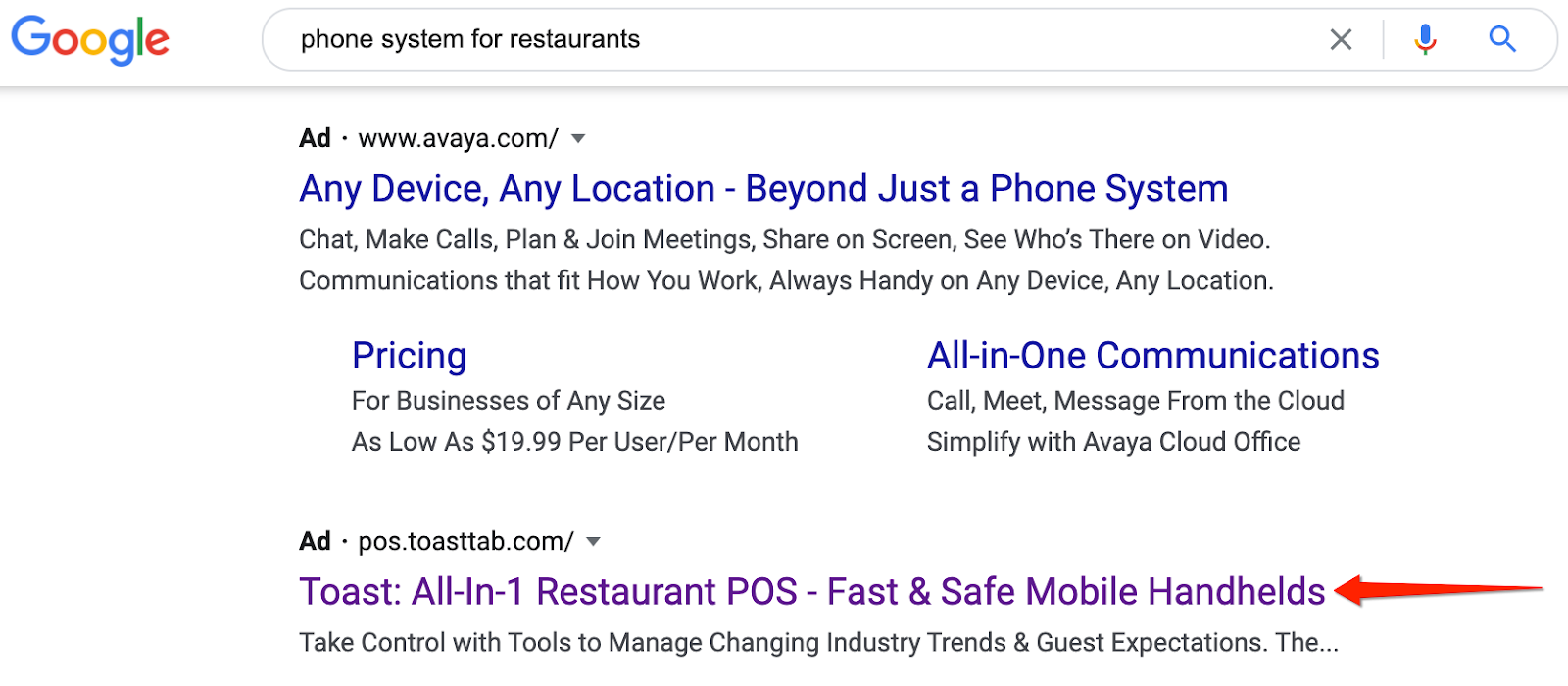
This is why Google has become a modern day casino for advertisers. The marketing team at Toast is gambling on the mere possibility that restaurant managers seeking a phone system might also be in the market for POS software.
While it might work, the potential for bleeding is likely. That said, Toast is venture-backed and valued at $4.9B, so this is probably a gamble they’re comfortable taking.
You need to study the search results closely if you want to master the art of understanding keyword intent. Google often signals their own interpretation of a search term, based on the types of results.
For example, if you Google “sales funnel” the search engine results page (SERP) indicates you’re looking for the definition of a sales funnel.
The results are largely definition style SEO pages, and therefore it’s obvious that a product page wouldn’t rank for this query.
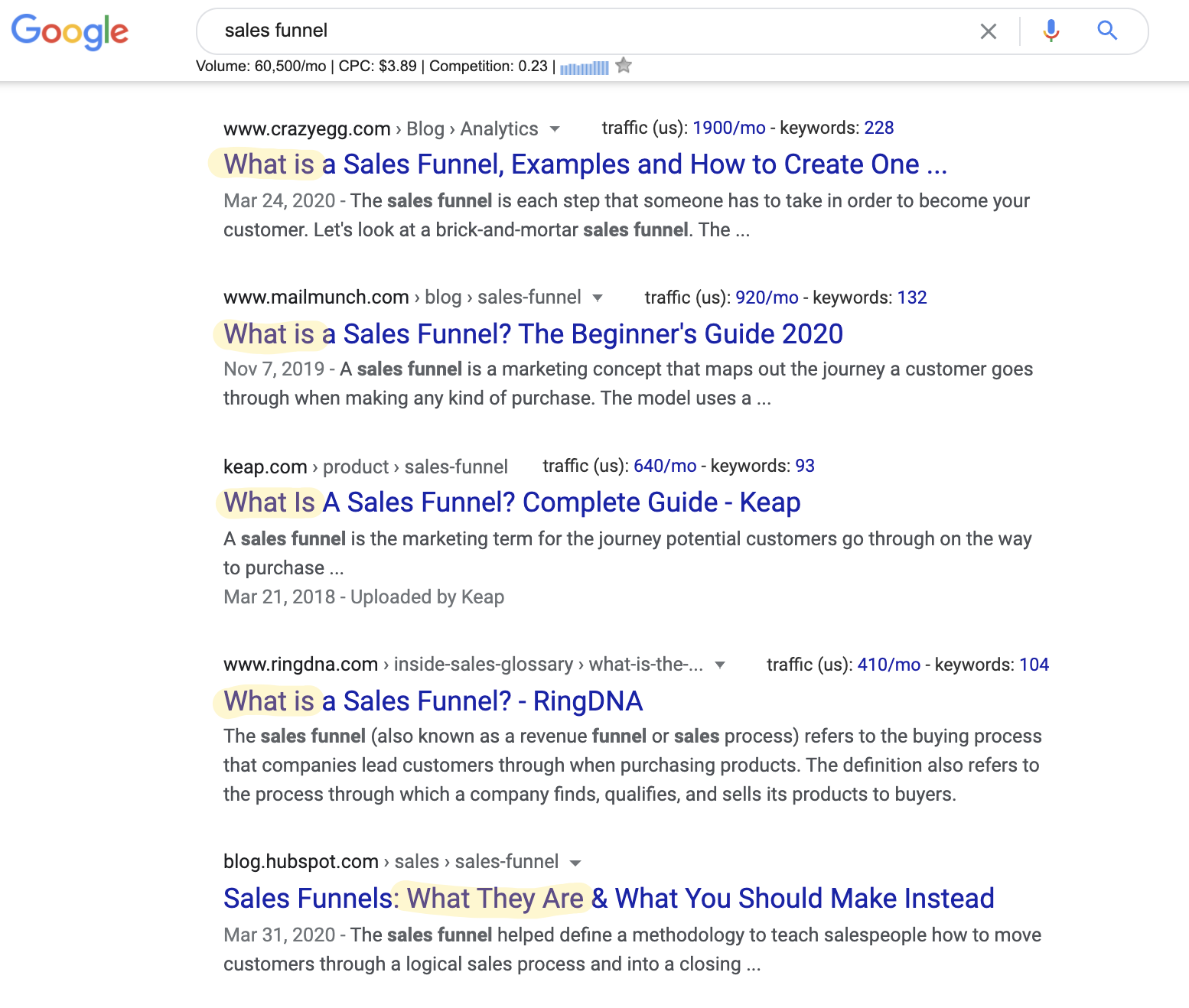
Let’s examine another example of a keyword trap. If you perform a Google search for “online training” you’re going to see two vastly different results in the ads.
- Cisco – Virtual Classroom Solutions
- Udemy – Best Selling Online Courses
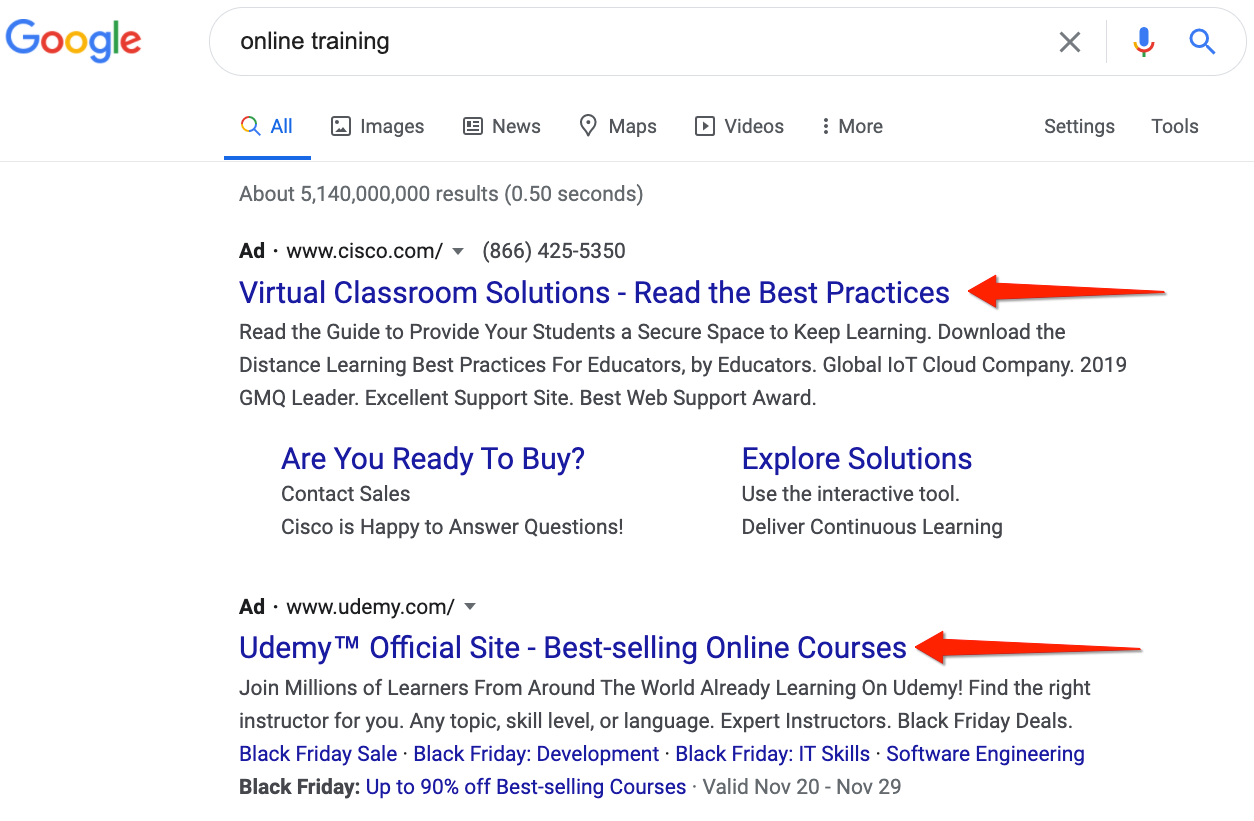
These are two wildly different search intents. How do you know if a searcher wants online training software versus online courses? There’s no way to be 100% certain.
However, the organic results are overwhelmingly online course companies such as Udemy, Lynda, and Coursera. The people also ask box is hinting at the search intent, because most of the questions are about online training.
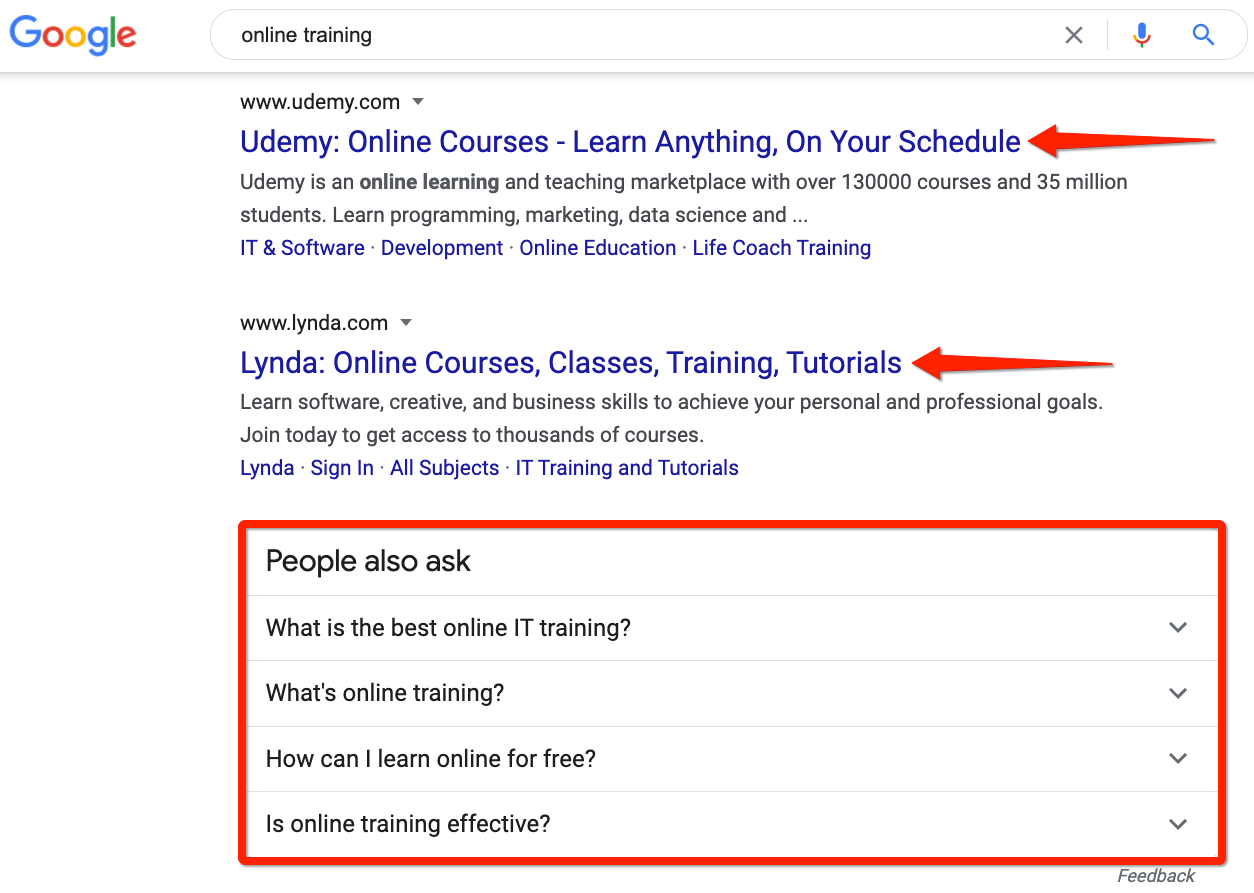
Based on what the organic listings are showing, I would conclude that Cisco’s ad is largely irrelevant. They might get lucky and grab some clicks, but they’re probably losing money on this ad set.
Now, the question becomes, do they care? Probably not. After all, they’re a $180B market cap, which means Cisco can afford to continue making Google rich.

What about the small guys? This is where SMBs have a tremendous disadvantage, and can’t afford to bleed on paid ads like the behemoths. For that reason, I would recommend startups prioritize SEO efforts in order to avoid the royal rumble of paid ads with giant companies like Cisco.
Let’s also examine “sms marketing examples” where Mobile Monkey nails the search intent with this page, and gets rewarded with the organic featured snippet. Meanwhile, advertisers are off the mark.
- Vonage – hoping that a subset of searchers might be interested in APIs for SMS.
- Remarkety – hoping that a subset of searchers might be interested in SMS marketing solutions.
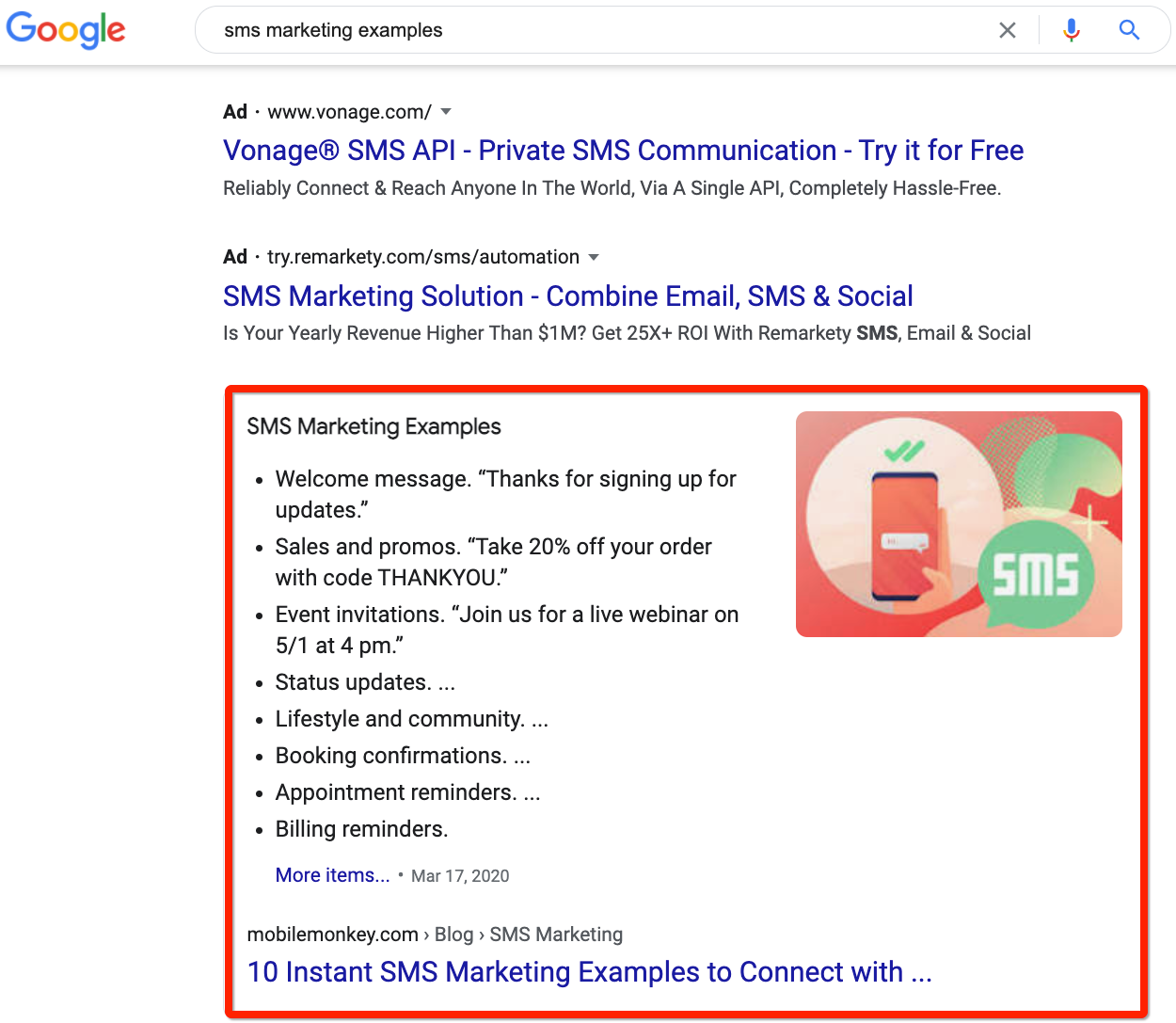

 English
English French
French German
German



